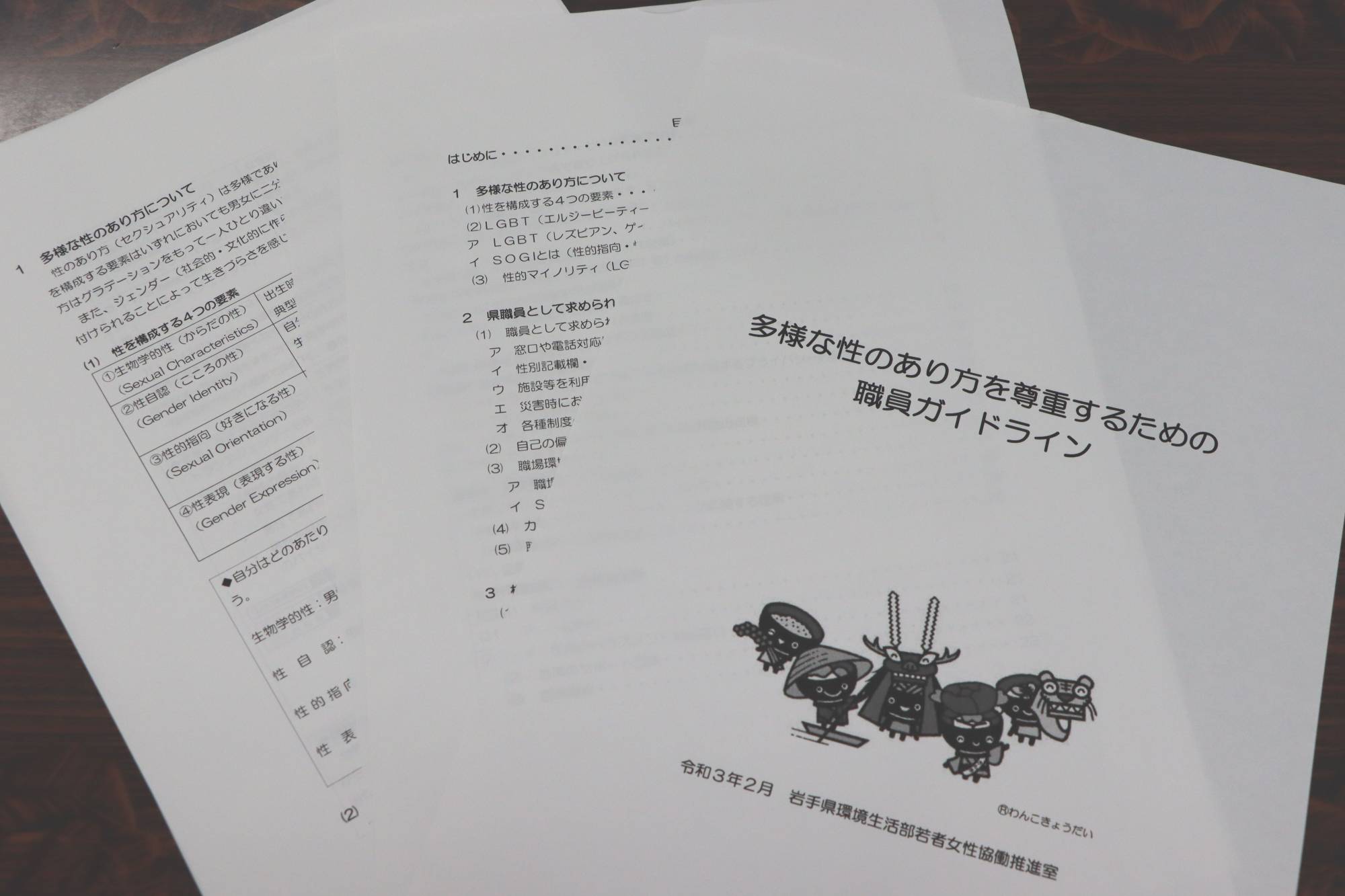The Iwate Prefectural Government has changed the wording of guidelines created to deepen the understanding of sexual minorities by its employees after criticism arose over the description on how it relates to the use of sex-segregated bathrooms.
The move has been seen as a setback for the prefectural government’s consideration for LGBTQ people. An assistant professor at a university who had been involved in the compilation of the guideline requested that her name be taken off the list of supervisors to protest the change.
Officials from the prefectural government said the guideline was modified because there was a misleading expression. The expression in question was included in a section featuring examples of how to respond to cases relating to sexual minorities using public facilities and at schools.


















With your current subscription plan you can comment on stories. However, before writing your first comment, please create a display name in the Profile section of your subscriber account page.